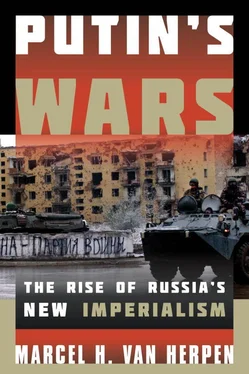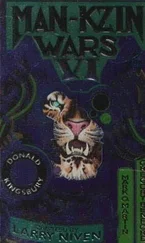It is estimated, for example, that between the middle of the 16th century and the end of the 17th, Russia conquered territory the size of the modern Netherlands every year for 150 years running. Furthermore, unlike the case of most other imperial powers conquest by Russia became a permanent and nonnegotiable political fact (save under conditions of extreme duress, as with the Treaty of Brest-Litovsk in March 1918). [23] Colin S. Gray, “The Geopolitics of the Nuclear Era: Heartland, Rimlands, and the Technological Revolution,” Strategy Paper No. 30, National Strategy Information Center, Inc., (New York: Crane, Russak & Company, Inc., 1977), 35. Charles Tilly even spoke of “two and a half centuries, [in which] Russian expansion scarcely ceased” (cf. Tilly, Coercion, Capital , 189). The Norwegian polar explorer Fridtjof Nansen estimated that “every seven years from 1500 until his day [around 1910, MHVH], Russia gained an amount of territory equal to that of his own country, the Kingdom of Norway.” (Vladimir Solovyov and Elena Klepikova, Inside the Kremlin (London: W. H. Allen & Co Plc, 1988), 262–263.) The land surface won by Russia in four hundred years, was, according to Nansen, approximately fifty-seven times that of Norway, which is about 17 million square kilometers. The surface of the tsarist empire in 1910 was about 23 million square kilometers. Nansen’s estimate seems rather plausible.
Traditions can be upheld and followed with more or less constancy and enthusiasm. A country can become an imperial power by making this an explicit choice or in a more or less accidental way. The British Empire, according to the nineteenth century British historian Sir John Seeley, was acquired “in a fit of absence of mind.” There existed no previous, elaborated British plan to build an empire. Edward Dicey, a British journalist and writer, wrote in 1877:
We have never been a conquering nation. Since the days when the Plantagenets essayed the conquest of France we have never deliberately undertaken the conquest of any foreign country; we have never made war with the set purpose of annexing any given territory. We have had no monarchs whose aim and ambition it has been to add fresh possessions to the crown, in order simply and solely to extend the area of their dominions. [24] Edward Dicey, “Mr Gladstone and Our Empire,” September 1877, in Nineteenth Century Opinion: An Anthology of Extracts from the First Fifty Volumes of The Nineteenth Century 1877–1901 , ed. Michael Goodwin (Harmondsworth: Penguin, 1951), 261. Dicey added: “But our conquests have come to us as the accidents of war, not as the objects of our warfare. I do not deduce from this that our annexations of territory have been obtained more justly or more rightfully than those of other powers who have conquered for the sake of conquering. What I want to point out is that our Empire is the result not so much of any military spirit as of a certain instinct of development in our race. We have in us the blood of the Vikings; and the same impulse which sent the Norsemen forth to seek new homes in strange lands has, for century after century, impelled their descendants to wander forth in search of wealth, power, or adventure” (Dicey, “Mr Gladstone,” 262).
Although the British perception that their empire was created in “a fit of absence of mind” may be exaggerated, it is not an exaggeration to say that from its early beginnings the Russian empire has been conceived as a deliberate project. The twin objectives of territorial expansion and the subjugation of other peoples were consciously and purposively pursued by Russia’s political elite. An exemplification for this mindset is tsarina Catherine the Great’s famous dictum: “I have no way to defend my borders but to extend them.” [25] Quoted in Ivan Krastev and Mark Leonard, “The Spectre of a Multipolar Europe,” Policy paper (London: European Council on Foreign Relations, 2010), 32.
It was not only a supposed fragility of the Russian state that was at the root of its continuous expansion. “The fact that, unlike Western Europe, the formation of the empire does not succeed the construction of the state, but accompanies it, has also blurred the dividing lines. The concept of the nation and imperial ambition merge as soon as Moscow, the first centre of the modern state, gains the upper hand over rival Russian principalities and, then, over the weakened mongol overlord.” [26] Claire Mouradian, “Les Russes au Caucase,” in Le livre noir du colonialisme: XVIe–XXIe siècle: de l’extermination à la repentance , ed. Marc Ferro (Paris: Robert Laffont, 2003), 393 (emphasis mine).
The fact that in Russia empire building was a constitutive part of the process of state formation indicates a fundamental difference with empire building by the Western European states, which only began after the national states had been consolidated. While Russia was a “product of empire,” this was not the case here. John Darwin, for instance, emphasized the fact that Britain “was not in any obvious way a product of empire. It was not ‘constituted’ by empire—a modish but vacuous expression. The main reason for this was that its English core was already an exceptionally strong and culturally unified state (taking language and law as the most obvious criteria) long before it acquired an empire beyond Europe.” [27] John Darwin, Unfinished Empire: The Global Expansion of Britain (London: Penguin, 2013), 399.
The same was true for Portugal, Spain, France, and even the Netherlands (which from 1568 to 1648 was fighting a war of independence against Spain).
RUSSIAN DESPOTISM AND RUSSIAN IMPERIALISM: INSEPARABLE TWIN BROTHERS?
In Russia internal despotism and external imperialism went hand in hand. They were, so to speak, inseparable twin brothers. We can distinguish five factors that played a role in establishing this link:
1. Territorial expansion gave extra legitimation to the rule of the despot.
2. Territorial expansion functioned as a surrogate satisfaction for the disenfranchised (serf) population.
3. Because despots tend to reign for longer periods than democratically elected leaders, they are in a better position to make long-term projects, especially those concerning imperialist territorial expansion.
4. Despotic rule as such fits better with imperial rule than with democratic rule. Despotic and imperial rule are congenial.
5. Despotic rule is not only more apt to generate imperialist policies than non-despotic rule, it also has a tendency—as in a dialectical process—to be strengthened , in its turn, by the empire, because its vast surface and the many different subjugated populations will hamper the establishment of a more democratic rule. In this sense despotic rule and imperialism are mutually reinforcing processes.
Despotic rule means suffering for the population, which is denied basic human freedoms and civil rights. A despotic tsar does not legitimize his absolutist rule by a reference to the popular will, but to divine right. This legitimacy, based upon a metaphysical droit divin, will be strengthened when the ruler can boast important imperial conquests. Imperial conquests provide, so to speak, an additional legitimacy for his rule . This same mechanism can be seen to play a role in Putin’s (partial) rehabilitation of Stalin. Stalin’s “geopolitical genius,” that is, his territorial expansionism, is used to (re-)legitimate his regime.
Since the Sobornoe Ulozhenie of 1649, which is the social charter of Russian absolutism, the enserfment of the Russian peasantry, which had already begun two centuries earlier, was definitively established. From that moment on Russian serfs were irreversibly bound to the soil of their master. Moreover, the towns were subjected to tight controls and sealed off from the rest of the country. The urban poor were considered as state serfs. Only taxpayers (that is, the aristocracy and the rich merchant class) could be legal residents. No inhabitant could leave without royal permission. [28] Cf. Perry Anderson, Lineages of the Absolutist State (London: Verso, 1979), 337.
Rural migration was definitively stopped. Serfdom, however, was not in the interest of the private landowners alone. In the middle of the nineteenth century the Russian state owned land with twenty million serfs on it. This was 40 percent of the peasant population. [29] Anderson, Lineages , 346.
This population was literally the property of the state. A population that has practically no rights, not even the ability to move freely around the home country, cannot have the personal pride and individual satisfaction of free people. In such a case, the home country’s imperial conquests provide an ersatz satisfaction. Feelings of powerlessness and a lack of personal pride and individual accomplishment are compensated by a process of identification with the power and the glory of their country. The lack of personal respect that they receive as individuals is compensated by the respect—and fear—that their home country inspires. “If a man is proud of his Belief, his Fatherland, his People,” one can still read in an anonymous Russian publication of 2007 attacking democracy, “he finds internal pride in himself as a representative of this great people and great country.” [30] Anonymous authors, Proekt Rossiya: Vybor Puti, Vtoraya Kniga (Moscow: Eksmo, 2007), 395.
This mechanism can be observed in a population of serfs that has been enslaved, as well as in a population that gives up its original freedom and enslaves itself for the sake of national glory. John Stuart Mill already described this mechanism in his Considerations on Representative Government (1861), where he wrote:
Читать дальше












